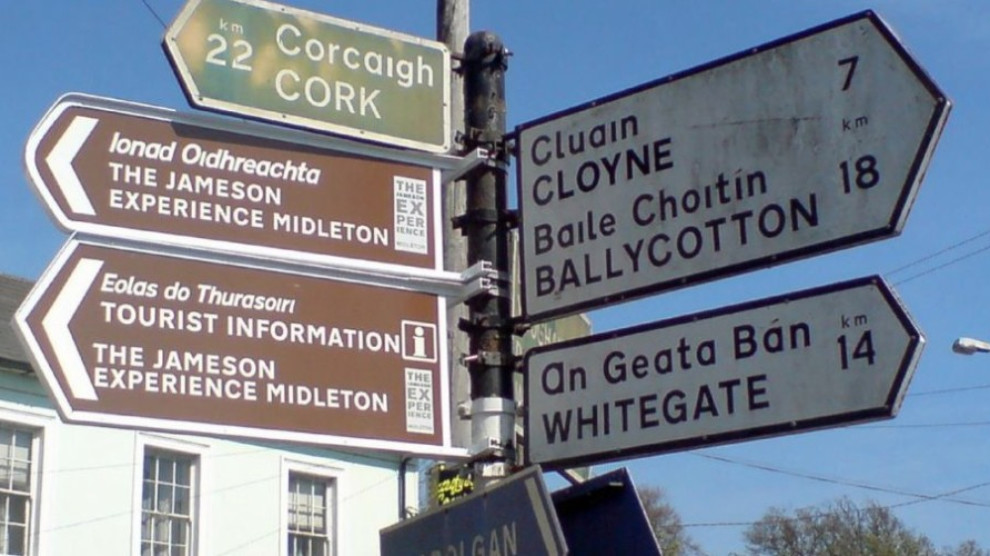Sinn Féin proposed that all streets in the city should have the option to have bilingual street signs, with each street having the opportunity to say no. The motion came before the Belfast City Council Strategic Policy and Resources Committee this week.
The SDLP and People before Profit supported the motion, while all the parties in the committee, the DUP, Alliance, and the Greens, voted against. The motion fell by nine votes for, to ten votes against, a setback in the long and difficult campaign for rights for Irish language speakers.
The current policy in Belfast is heavily loaded to exclude Irish. It requires 33% of the eligible electorate in a city street to sign a petition to begin the process, then a letter is sent to everyone in that street on the electoral register asking for consent to bilingual signage.
The resident has three options, ‘Yes’, ‘No’ and ‘Don’t Care’. At least 66% of the people surveyed must be in favour of the proposal to erect a second street sign in a language other than English. If the resident gives a ‘Don’t Care’ reply, or if a letter is not returned, it is considered a negative response by the Council.
The failure of the Alliance party to support the change has caused a bitter row. Its leader, Naomi Long, defended her party’s position by saying on Twitter that “Irish is contentious”, a stance that has brought accusations of anti-Irish racism.
An Dream Dearg, which campaigns for language rights in the Six Counties, has called for the current, discriminatory policy to be scrapped, and for international standards on minority rights to be followed. They were greatly disappointed by the outcome of the latest council vote.
“We had hoped that after constant campaigning that things had improved, that the Council was moving on from its old and discriminatory policies,” they said. “It’s clear that there is a long way still to go.”














